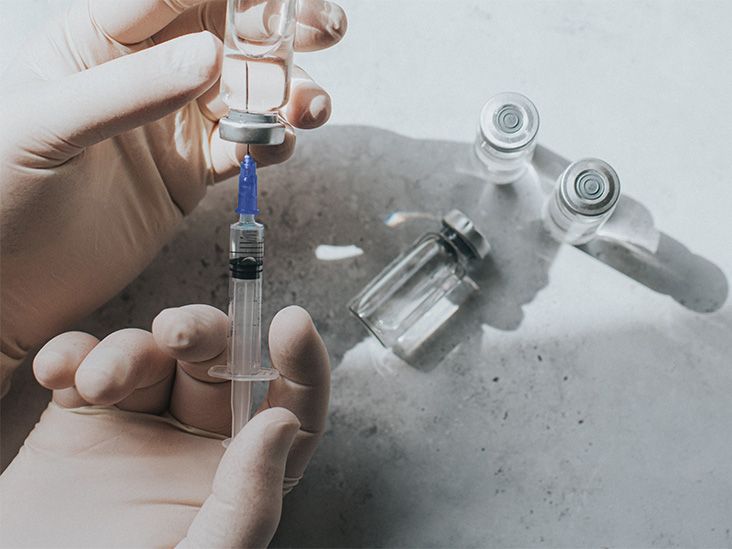Immunotherapy is a type of biologic therapy that can treat certain diseases and cancers, including advanced melanoma, a type of skin cancer.
Immunotherapy uses drugs to make the immune system more effective in recognizing and attacking cancer cells, which helps improve the chance of recovery and reduce cancer recurrence. The treatment can take the form of an injection or intravenous (IV) injection.
Read on to learn more about immunotherapy for melanoma, including the types, success rates, and side effects.

A person may receive immunotherapy through an injection or IV infusion.
Immunotherapy can serve as the sole treatment for melanoma. Alternatively, it may involve several forms of the treatment, for example, a combination of injections and topicals.
Doctors may use immunotherapy in conjunction with other treatments, such as:
- surgery
- chemotherapy
- radiation therapy
- targeted therapy
- vaccine therapy
There are several types of
Immune checkpoint inhibitor therapy
Melanoma cells may hide behind checkpoints to prevent detection and attack from the immune system. Immune checkpoint inhibitors block immune molecules, stimulate the immune response, and expose the cancer cells.
Immune checkpoint inhibitors include:
Additionally, a new class of LAG-3 antibodies recently received approval from the Food and Drug Administration (FDA).
Interleukin-2 (IL-2)
IL-2 stimulates the immune system and enhances the body’s immune response. It increases the growth and activity of immune cells, particularly lymphocytes, a class of white blood cells that fight and destroy cancerous cells. This may help destroy melanoma cells and shrink advanced tumors.
Oncolytic virus therapy
Oncolytic viruses, which healthcare experts produce in a laboratory, can treat tumors locally. They activate the immune system and kill cancer cells, which may help shrink tumors.
Talimogene laherparepvec (Imlygic) is an oncolytic virus that targets skin or lymph node melanomas when surgical removal is not possible.
Bacille Calmette-Guérin (BCG) vaccine
The BCG vaccine stimulates the immune system to destroy cancerous cells in certain areas of the body. However, this is not a common treatment.
Immunotherapy is a promising treatment for advanced melanoma that shows varying levels of effectiveness and adverse effects.
According to a
There are several risks and side effects of immunotherapy for melanoma. They can vary depending on the type of treatment and a person’s stage of cancer and health. Combination therapies may cause more severe side effects in some people.
People should report any side effects to their doctor, especially if they are severe.
Immunotherapy can cause a range of side effects. Some of these possible side effects include, but are not limited to:
- fatigue
- cough
- nausea
- diarrhea
- fever
- chills
- aches
- skin rash
- reduced appetite
- constipation
- joint pain
- injection site pain
- reduced blood cell counts
- fluid retention, or edema
Early detection and treatment of melanoma are crucial, as it can grow and spread to other areas of the body, making it more difficult to treat. Immunotherapy is a promising treatment for advanced melanomas that surgery cannot fully remove.
Immunotherapy functions differently than other treatments, as it uses the body’s natural defense system rather than chemicals. However, people have different responses to immunotherapy, and it is not effective for everyone. After treatment, melanoma can recur in different areas of the body or the original site it developed. However, researchers are continuing to develop more effective treatments.
People with advanced melanoma may also opt to participate in a clinical trial that uses new or experimental therapies.
Immunotherapy is a class of treatments for some diseases and cancers such as melanoma. It uses immune system modulators that improve the immunity of a person. This allows the immune system to detect and attack cancer cells more effectively.
Depending on the stage of cancer and type of tumor, a doctor may recommend immunotherapy on its own or in combination with additional treatments. Healthcare professionals may also recommend using several types of immunotherapy.
Before starting any treatment, a person must discuss the benefits and risks with their doctor. They should also speak with a healthcare professional if they experience side effects, particularly if they are severe.



